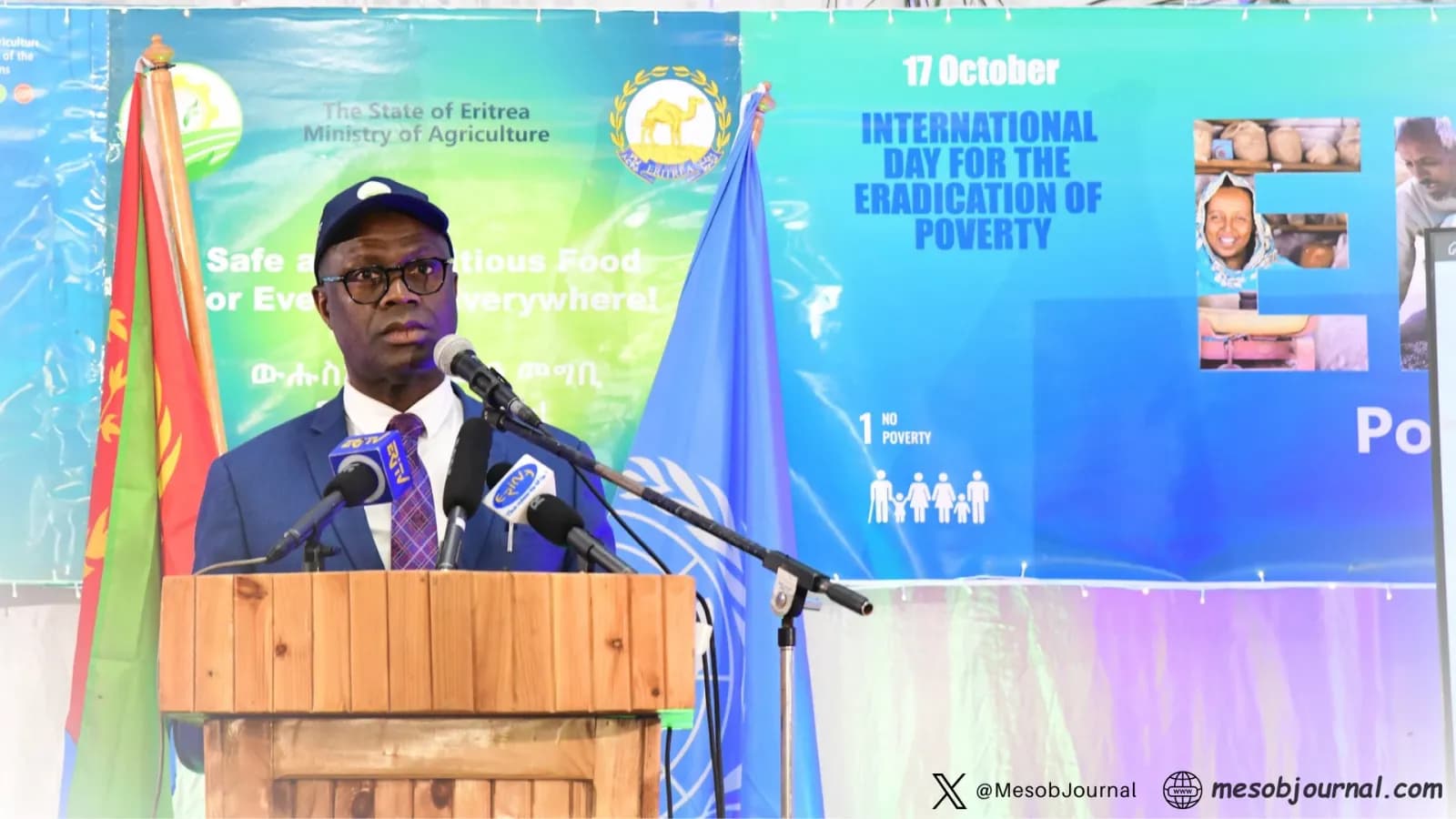Eritrea’s Model of Resilience Draws UNDP Recognition

As the world marked the International Day for the Eradication of Poverty and World Food Day 2025, the United Nations Development Programme (UNDP) turned its spotlight on Eritrea’s self-reliant path of development — describing the country as a clear example of how climate resilience and food security can reinforce one another.
In its feature, “A Resilient Eritrea: Community Action for a Prosperous Future,” UNDP Eritrea praised years of steady investment in climate adaptation and community-driven work. “When a family’s harvest is secure, its dignity is affirmed, and its future is unlocked,” the agency wrote, linking household stability to national strength.
The piece singled out Eritrea’s network of water-harvesting dams, hillside terraces, and reforestation drives that have turned once-dry landscapes into productive farmland. These, it said, are more than development “projects” — they amount to a national movement rooted in local participation and long-term vision.
That outlook, anchored in self-reliance, has defined Eritrea’s policies since independence. UNDP called the country’s soil and water programs “a national shield against the impacts of climate change,” noting that each reservoir or terrace contributes to both livelihoods and ecosystem recovery.
Among recent efforts, the modernization of the date-palm sector has raised rural incomes through improved technologies and market access. Another initiative, launched with the Ministry of Agriculture, is bringing climate-smart farming to more than 4,600 farmers across Maekel, Anseba, and Gash Barka. New irrigation systems are easing workloads — especially for women — and encouraging diversification into education and small enterprise.
“The benefits are multifaceted,” UNDP said, pointing to higher yields, healthier soil, and the freedom it gives women to play larger roles in community life.
For Eritrea, such progress reflects a familiar idea: development should strengthen dignity, not dependence. The UN agency echoed that belief, saying that lasting progress “demands persistence and shared responsibility,” and reaffirmed its partnership with Eritrea’s community-based programs.
From reforestation to water conservation, the country’s quiet transformation is visible on the ground. It shows what happens when local ownership meets national vision — and when resilience is treated not as a slogan, but as daily work.

